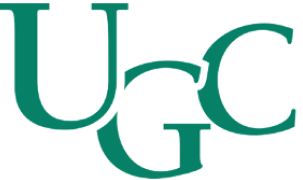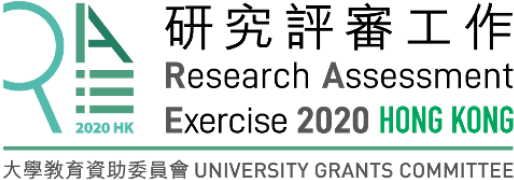Unit of Assessment:
Research categories:
?Psychiatry/Psychology
Psychology, Social (1)
Social Sciences, General
Education & Educational Research (1)
Language & Linguistics (1)
Social Sciences, Interdisciplinary (1)
Sociology (1)
Impact locations:
?Asia
China (Mainland China) (1), Macao, China (1)
Oceania
Australia (1), New Zealand (1)
South America
Sao Paulo (1), Brazil (1)
North America
United States (2), New York (1), Canada (1)
Case Study
Enhancing education abroad: Deepening language/intercultural learning and engagement
1. Summary of the impact
Jane Jackson’s research is influencing the design and delivery of international education across the globe, benefiting thousands of education abroad students and practitioners. Higher education administrators often assume that international educational experience automatically leads to interculturality, global-mindedness, and language proficiency. Jackson’s studies, however, underscore the imperative for pedagogical interventions to promote immersion in the host environment and deeper levels of language and intercultural learning. Her publications, workshops, and presentations/webinars are inspiring educational institutions in Greater China, Australia, Europe, the USA, and beyond to modify their internationalization policies and practices to embed intercultural interventions in their education abroad programs.
2. Underpinning research
Jackson has been an active education abroad researcher-practitioner since 2000. At CUHK, she designed, implemented, and evaluated an enrichment program for English majors, which centered on a five-week sojourn in England. With the support of the Hong Kong Research Grants Council (RGC), from 2000-2009, she tracked the language and intercultural learning of multiple cohorts, resulting in the publication of two monographs and numerous articles/book chapters. With RGC funding, she then carried out a mixed-method investigation of the language and intercultural development of semester-abroad students (2010-12), which provided essential groundwork for an inter-institutional project that included CUHK, Fudan University, Nanjing University, and Tsinghua University. This longitudinal project (2013-16) investigated the ‘whole person’ development of ~900 outbound international exchange students, culminating in many publications/presentations [3.1]. With partners in Australia and New Zealand, Jackson researched the experiences of Chinese international exchange students in Australasia (2016-17). From 2017-19, Jackson investigated the language and intercultural learning/adjustment of inbound international exchange students in Hong Kong. In addition to preparing full-cohort profiles, Jackson and her team developed richly-detailed case studies that helped to identify internal and external elements that can influence developmental trajectories and learning outcomes. Findings from the research cited above consistently pointed to the need for pedagogical interventions; most participants return home with little change in their language and intercultural awareness when there is very limited or no preparation or support.
A firm believer in the need to narrow the research-practice gap, Jackson undertook education abroad projects, which have been funded by eLearning and Teaching and Learning Development grants. These initiatives have supported the development and evaluation of a fully online intercultural communication course for international exchange students to take while abroad [3.2] and a blended intercultural transitions course for inbound students and education abroad returnees [3.3]. To further promote critical reflection on stays abroad, Jackson developed CUHK’s Annual Study Abroad Writing contest, which has been running successfully since 2011. (Winning essays are posted online for anyone to access). Drawing on her research and practice, Jackson developed a framework for conceptualizing the intercultural competence development of second language education abroad students, raising awareness of key variables: language and intercultural attitudes, cultural and linguistic knowledge, intercultural communication skills, personal qualities (e.g. degree of openness, cultural empathy), and host receptivity. This framework underpins her pedagogical interventions and an intercultural communication text, which is now widely used to deepen the language and intercultural learning of both mobile and non-mobile students [3.4].
To facilitate the work of international educators and enhance the experience of education abroad participants, Jackson produced a monograph on interculturality in international education [3.5] and a co-edited book that showcases intercultural interventions across the globe [3.6]. In sum, Jackson’s work (theory, research, practice) forms the foundation for innovative pedagogical interventions throughout the education abroad cycle, including pre-departure workshops; face-to-face, blended or online intercultural communication/transition courses while students are abroad; re-entry debriefings/blended intercultural transition courses.
3. References to the research
[1.] Jackson, J. (2017). The personal, linguistic, and intercultural development of Chinese sojourners in an English-speaking country: The impact of language attitudes, motivation, and agency. Study Abroad Research in Second Language Acquisition and International Education, 2(1): 80-106.
[2.] Jackson, J. (2019). Online intercultural education and study abroad: Theory into practice. In E. Jones, Series Ed., Internationalization in higher education, London and New York: Routledge.
[3.] Jackson, J. (2015). Becoming interculturally competent: Theory to practice in international education. International Journal of Intercultural Relations, 48, 91-107.
[4.] Jackson, J. (2014). Introducing Language and Intercultural Communication. London and New York: Routledge. (Student text, companion website, and online instructor’s guide; 2nd edition, 2020)
[5.] Jackson, J. (2018). Interculturality in international education. London and New York: Routledge.
[6.] Jackson, J. & Oguro, S. (Eds.) (2018). Intercultural interventions in study abroad. In E. Jones, Series Ed., Internationalization in higher education. London and New York: Routledge.
Awards: CUHK’s 2013 Education Award (shortlisted for the Hong Kong University Grants Council’s Excellence in Teaching Award); Hong Kong (RGC) Prestigious Fellowship under the Humanities and Social Science Panel (HSSPFS) (2016-18)
4. Details of the impact
Jackson’s research inspires educational institutions to: 1) rethink their internationalization policy and strategies and 2) devote much more attention to the quality of international educational experience [3.5, 3.6]. 3) Her models of intercultural interventions (F2F, blended, fully online) have been adapted for diverse education abroad contexts, e.g. South America, Asia, Europe and the USA [3.2, 3.3, 3.5, 3.6]. While the primary beneficiaries of her work are international students and educators, advances in interculturality and language proficiency ultimately benefit both home and host communities.
Jackson’s ‘original framework for the understanding of intercultural communication’ [5.1], ‘experience-based’ approach to pedagogy [5.2], and eLearning practices [3.2, 3.5] have inspired international educators to develop their own interventions. Describing Jackson as ‘an innovator in the use of internet-based platforms’, John Corbett (University of Sao Paulo, Brazil) states that she is ‘one educator and scholar who has used IT to support and guide exchange students to enrich their lives while living overseas, and in doing so she has provided an inspirational model for educators in other institutions, worldwide. By facilitating and adding value to the student exchange experience, she has also contributed substantially to the internationalisation agenda that motivates many Higher Education institutions’ [5.1].
Since 2016, Jackson has served as an advisor for the award-winning Swiss MILSA (Mentoring Intercultural Learning through Study Abroad) program; her theoretical and practical input ‘profoundly influenced the development of the mentoring program in its intention and structure’ [5.3]. Jackson regularly shares her insights at conferences hosted by the Asia-Pacific Association of International Education, the European Association of International Education, NAFSA: Association of International Educators, and the Council on International Educational Exchange (CIEE). Keynote addresses in Australia, Canada, China, Hong Kong SAR, Macau, New Zealand and Europe have enabled her to reach hundreds of international educators [5.4].
In 2018, for the Institute for Cross-Cultural Teaching and Learning, Jackson hosted a webinar about her online intercultural intervention. 100+ educators from 20 U.S. institutions of higher education tuned in; the feedback was very positive [5.5]. Inspired by the webinar, attendees are developing their own interventions drawing on Jackson’s theoretical framework/pedagogy, e.g., Dr. Whitney Sherman, the Academic Director of Intercultural Learning at CIEE, a non-profit study abroad and intercultural exchange organisation, is building a hybrid intercultural communication course that will be used with CIEE participants at multiple international locations [5.6]. At the State University of New York, educators are incorporating critical reflection into their study abroad programs. ‘Professor Jackson’s model, and especially her emphasis on social connection via group discussions, individual feedback, and self-reflection, has informed the system we have piloted this summer at Geneseo, in which Study Abroad instructors adopt a series of reflective writing prompts, the language of which is keyed to our office learning outcomes for intercultural competence, in an online system that enables peer and instructor feedback before, during, and after travel’ [5.2]. Additionally, the study abroad writing contest that Jackson developed at CUHK is inspiring similar initiatives elsewhere. ‘While we are in the process of designing an online magazine to publish model reflective essays from our study abroad students, the addition of a contest—mentioned in Professor Jackson’s presentation—would be a welcome element in the future’ [5.2].
Besides resources for international educators [3.2-3.6], Jackson has published a research-inspired text which is widely used in intercultural communication courses for both mobile and non-mobile students. Since 2014, ~7,000 copies of Introducing Language and Intercultural Communication have been sold in Asia, Europe, North America, the Middle East, and elsewhere; it is now in its second edition. From May to December 2018, the companion website generated over 1,171 page views [5.7]. The text has received positive reviews from students/educators [5.8]. Students from different regions have provided compelling testimonials, explaining how the text/related pedagogical approach helped to ‘deepen and enrich their international educational experience’ [3.2, 3.4, 3.8]. A Nagoya University of Foreign Studies professor reported that the text helped to enhance his study abroad teaching: ‘[it] was particularly useful for my study abroad project, for which I developed and taught a travel language class’, adding that he would not have embedded reflective writing in the course if he ‘had not read Jackson’s work’ [5.9]. An Anglia Ruskin University professor asserted that ‘the book improved students’ intercultural communication skills during their study abroad experience’ [5.10].
In sum, Jackson’s research is being applied in many regions of the world to enhance intercultural education. This is improving the quality and long-term value of students’ intercultural experiences, which they will serve them well in their future lives and careers.
5. Sources to corroborate the impact
5.1 Testimonial from Prof. John Corbett (Visiting Professor at the University of Sao Paulo, Brazil and former Head of the Department of English at the University of Macao).
5.2 Testimonial from Dr. Jess Fenn, State University of New York, Geneseo, USA (She attended Jackson’s webinar in October 2018).
5.3 Joint testimonial from Dr. Ellen Krause, Executive Director, and Dr. Annie Cottier, Project Manager, of MILSA (Mentoring Intercultural Learning through Study Abroad), University of Bern, Switzerland; http://www.milsa.unibe.ch/about_us/index_eng.html).
5.4 Jackson has given numerous plenaries and keynote addresses on education abroad research. e.g. https://linguistlist.org/issues/27/27-954.html)
5.5 Invited webinar: Intercultural learning and engagement during study abroad: An Online intervention, Institute for Cross-Cultural Teaching and Learning, 04/10/2018 (https://www.ifcctl.com/store/p51/%28Past_Webinar%2C_Fall_Semester_2018%29_Jane_Jackson%2C_%22Intercultural_learning_and_engagement_during_study_abroad%3A_An_online_intervention%22.html); testimonial from Dr. Steven Duke (organizer of the webinar)
5.6 Testimonial from Dr. Whitney Sherman, the Academic Director of Intercultural Learning at CIEE (Council on International Educational Exchange)
5.7 Sales figures/website hits for Introducing Language and Intercultural Communication provided by Elizabeth Cox, Editorial Assistant at Routledge UK: 5.8
5.8 Positive feedback from students and teachers: Testimonials from students from different parts of the world who have used the text/participated in an intercultural intervention designed by Jackson; a review of the student text: Marco Cappellini (2015) Introducing language and intercultural communication, Language and Intercultural Communication, 15:1, 184-86, DOI: 10.1080/14708477.2014.976493
5.9 Testimonial from Prof. Allan Goodwin, Nagoya University of Foreign Studies, Japan.
5.10 Testimonial from Prof. Prof. Guido Rings, Anglia Ruskia University, UK.

